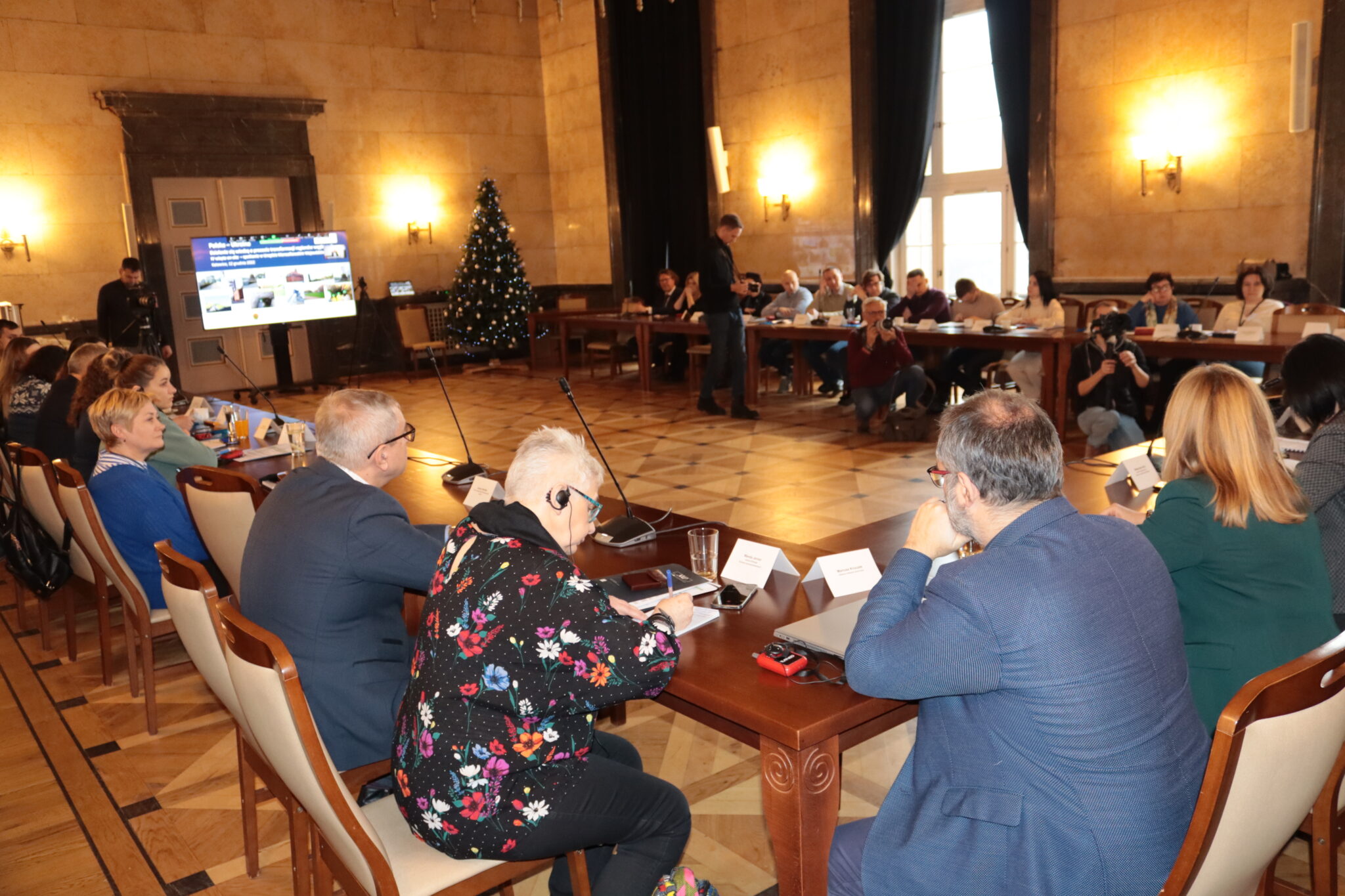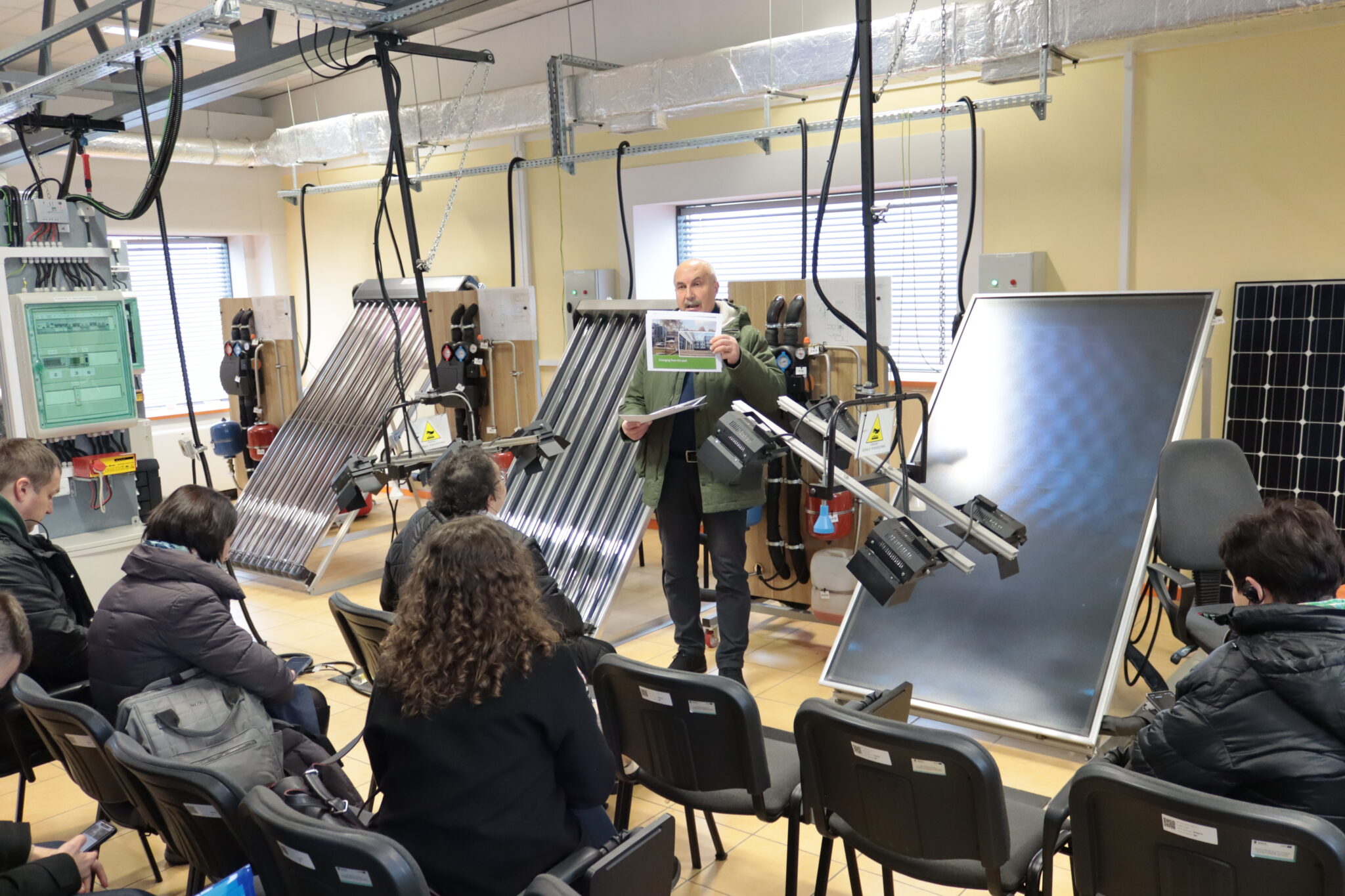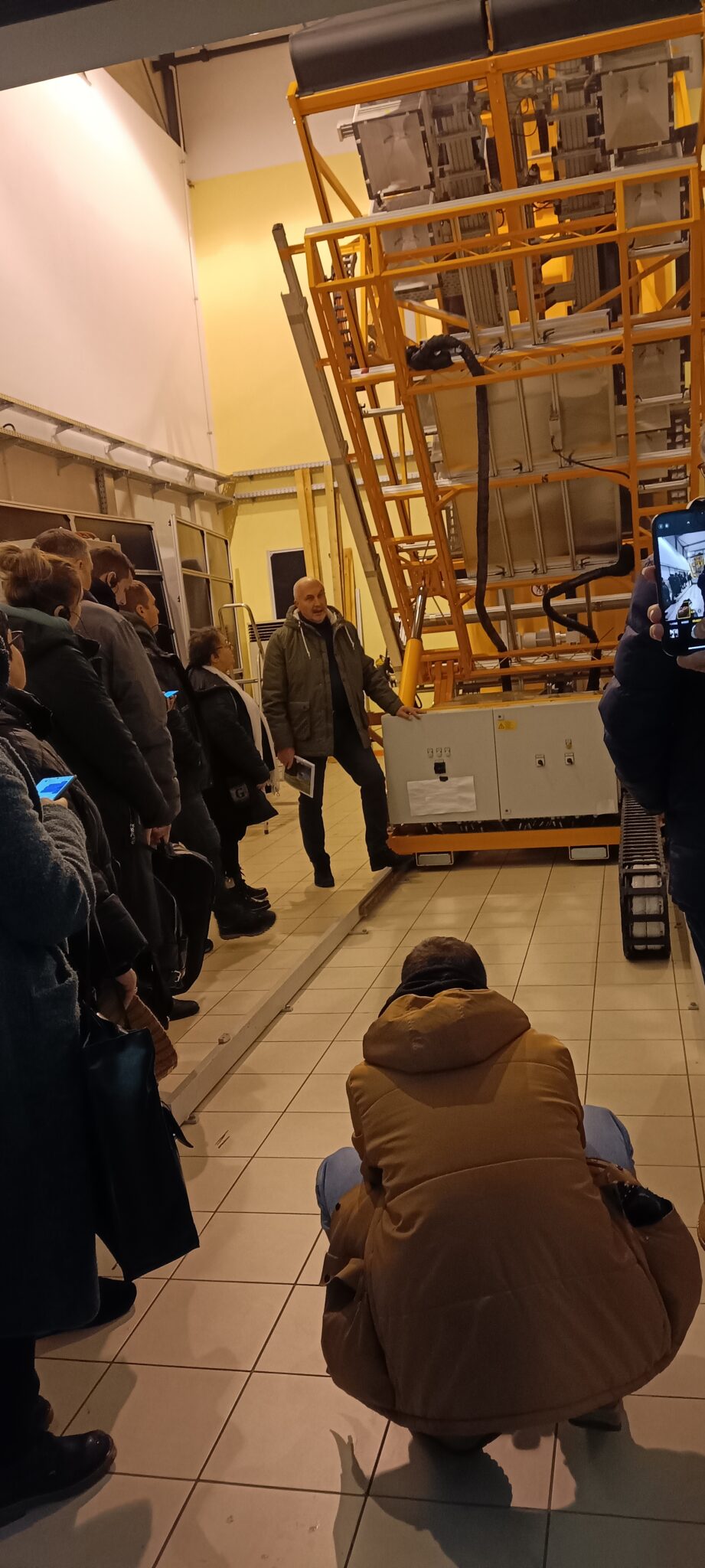
Study visit of the delegation from Ukraine
20.01.2023
– Over the last 30 years, we have gathered knowledge about the challenges of economic transition in Poland and how to address them. That is why we have decided to join the project on sharing knowledge and best practices with you. During the study visit starting today, you will have the opportunity to learn about the effects of the transition activities carried out so far, mainly in Silesia. We are very keen to share with you our experiences in this area - both the good ones and those behind which there are failures. Thanks to this, you will be able to bring new ideas, thoughts, solutions and contacts with you to the country. I am convinced that in the future they will result in further Polish-Ukrainian cooperation for the transition and reconstruction of Ukraine - President Mirowski addressed the guests.Magdalena Chawuła, an expert on just transition at the World Bank, also took the floor and discussed the scale of support that the World Bank was currently providing to Ukraine during the war. She emphasised how important the topic of preventing climate change, decarbonisation and just transition of coal regions was for the World Bank.
– Knowledge exchange programmes are very important for the World Bank, the Bank plans to support countries that make an effort towards the transition process and aim at achieving climate neutrality - added M. Chawuła.Study visits are to facilitate the establishment of cooperation between regions and to disseminate proven solutions useful in planning the transition process in the region in terms of legal regulations, organisational, economic, environmental and social solutions.
I am very happy that IETU can share our multi-year experience in environmental transition of degraded, post-industrial and polluted areas with our friends from Ukraine. It is important that, apart from good, proven solutions, we talk about difficult issues or mistakes we have made in the processes of assigning new functions to such areas - emphasises Dr. Marta Pogrzeba, Director of the Institute for Ecology of Industrial Areas.In times of a discussion about climate change and climate neutrality, just transition of the economy and innovative technologies that are the basis for the energy transition, the exchange of information, knowledge and experience is extremely important, because the challenges the regional authorities and local regions must face are great.
After the war, the transition of Ukraine's coal regions must make a new start - stressed Valentina Moskalenko, adviser to the Prime Minister of Ukraine on Regional Policy - We would like to understand all aspects of this process, and this is why here in Silesia we want to talk not only about what has been a success but also about those actions that were difficult and failed. Preparing the transition process in Ukraine's coal regions is extremely difficult, but its implementation will result in new forms of cooperation and provide measurable benefits in the future, particularly - Ukraine's energy independence.The participants of the study visit are representatives of local government bodies, social organisations, associations and state authorities of Ukraine.
Our guests begin their study visit to Poland from Upper Silesia - a hard coal region that so far has undergone the greatest changes in our country and, therefore, is the region where many examples of the transition process can be found. Within three days, we will be able to show only some of them, but our guests will have the opportunity to learn during the carried out discussions how the transition processes worked, how projects were prepared and implemented, and how residents could get involved in them. In order to make the best use of time and provide as much valuable information and knowledge as possible to the guests from Ukraine, the programme of the visit is very intensive - said Piotr Cofałka, Deputy Director for Research and Development at the Institute of Ecology of Industrial Areas.On the first day, guests from Ukraine saw the Katowice Culture Zone, which was established on the site of the former KATOWICE Hard Coal Mine. They met with representatives of non-governmental organisations in the EURO-CENTRUM Science and Technology Park, which is an innovation centre focused on the development of energy-saving technologies and energy conservation in buildings. The agenda of the visit includes meetings with representatives of local governments, e.g. Zabrze, Katowice and Bytom. In Zabrze, our guests will visit the tourist route in the GUIDO Coal Mine. The agenda also includes a discussion on new coal technologies and a visit to the Central Mining Institute. In addition, a visit to the Regional Centre for Water and Wastewater Management in Tychy, where modern technologies for collection and treatment of wastewater and generation of energy from renewable sources are used. The next meeting is planned at the NOWE GLIWICE Education and Business Centre, which was established on the premises of the liquidated GLIWICE Hard Coal Mine and former mining heaps. Next to the renovated historic buildings of the former GLIWICE Mine, companies providing highly specialised services in the electrotechnical, energy, telecommunication, IT and aviation industries were established. On the 15th of December guests from Ukraine will take part in the Conference: The World Bank's Commitment to Just Transition in Poland - summary and perspectives. In Konin, a meeting with the city authorities and representatives of the Regional Development Agency and ZEPAK is planned. The aim of the project "Sharing knowledge on the transition of coal regions - Study visits of stakeholders from Ukraine to Polish mining regions" is to present experiences in the field of transition of Polish coal regions - administrative and legal, organisational, economic, social, spatial and environmental conditions, etc. in the context of the functioning of the European Union organisations. The project is implemented in cooperation with the World Bank, which is involved in the exchange of knowledge between Ukrainian and Polish coal regions as part of a broad initiative entitled "World Bank Support to Coal Regions in Transition". Under the project, organisation of study visits of delegations from Ukrainian mining regions to Polish coal regions undergoing the transition process was planned. The implementation of the project began on the 1st of September, 2020, and its completion is scheduled for the 30th of June, 2023. So far, over 100 representatives of the Ukrainian administration, civil society and industry took part in the project. During three on-line visits the guests had the opportunity to talk and discuss with Polish experts and practitioners about the best ways to carry out just transition of Ukrainian coal regions based on Polish experience.














